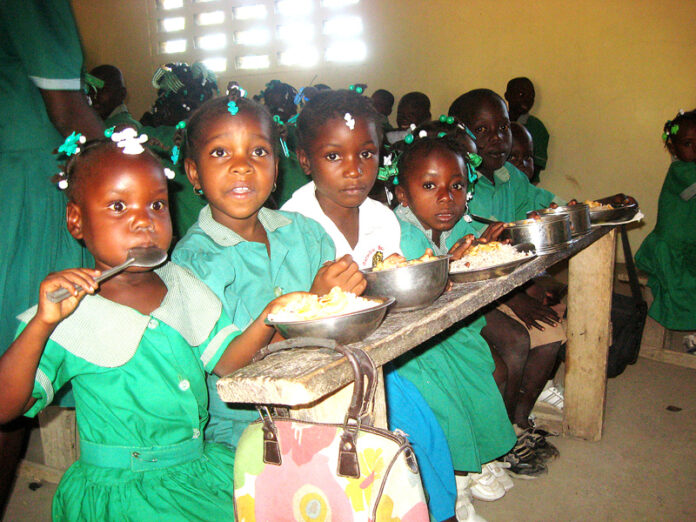
Virginia Tech public relations director Lynn Davis’s enthusiasm is palpable when she asks “how many professors do you know who retired when they were king of their discipline to do humanitarian work?”
She is referring to Dr. Dick Neves, a world-renowned expert in malacology — the study of mollusks – where he specializes in mussels. And “king” or not, the reality is that according to Neves’ humorous take, “much of my field career has been spent face down in rivers and streams.” Nowadays he spends a considerable amount of his free time helping a community in Haiti.
His two passions are connected by an event that took place when Neves visited the Holy Land. Neves was standing in the Sea of Galilee and walked out to “splash some water on my Bible and right at my feet were mussel shells.” He explored further and discovered “that was the only place [in that area] those shells occurred; I felt like someone was telling me my career was going to change – that something else was going to be taking up my time.”
Soon after that, he was at church when someone asked him if he was interested in the church’s Haiti program which focuses on improving schools there. He knew that was exactly what he wanted to do.
His church, St. Mary’s Catholic Church in Blacksburg, has been twinning with a school in Pignon, which is located in the central highlands, about 50 miles north of Port-au-Prince. The school, called Savanette, now has 164 students, thanks to the efforts of the St. Mary’s congregation.
Because of the distance from the quake’s epicenter, Neves says that there is “no known structural damage there; the kids are safe and the school is safe.” However, a concern for the outlying areas is that “refugees are now shifting up there.”
Neves observes that Haiti is a “very family-oriented culture so the people displaced from the damaged areas will go back to their families in the countryside,” where things are already precarious from an economic standpoint.
Neves has been to Haiti a couple times, but says now is not the time to return. His group is delaying a trip planned for this March as “the situation there is becoming more dangerous; it is risky business right now.” Besides, according to Neves, it is nearly impossible to get in; one alternative is to fly to the Dominican Republic and then cross the border. And once in, “how do you get back out?
They are in communication with the area through email; the Richmond Diocese, along with Catholic churches in Blacksburg, Radford and a small church in Pignon all share whatever updates become available.
Neves and his church, along with much of the world, share in the frustration of how to help the Haitians in the wake of the devastation. He agrees with the general consensus: “The best thing people can do is to send money. There are too many barriers to helping personally, or even to getting goods there.” He suggests supporting organizations that are “already working in Haiti and have established networks and offices” such as the Clinton/Bush organization, Catholic Relief Services, Food for the Poor, and Catholic Charities to name a few.
Looking back over his career with Virginia Tech, Neves says he initially became involved with freshwater malacology “by circumstance.” When he came to Tech as a research fishery biologist, he became involved with a study that led to “more mollusk projects because that expertise was a vacant niche in freshwater research.” Eventually he “rose through the federal ranks to a higher GS level and to full professor at VT” and became an internationally known mussel regenerist.
Nowadays he is a Professor Emeritus, someone he jokingly says “works for nothing because he / she doesn’t know when to quit.” He retains a consulting position with the Virginia Department of Transportation and conducts endangered mollusk surveys for them whenever bridge or road work adjacent to streams and rivers are planned.
Neves says that “It’s been a great career, but now it’s time to give back to those who never had or will have such an opportunity.” He feels his focus on the ministry in Haiti is worthwhile;“I don’t think anyone can go to Haiti and come back and be the same.”
He references some startling statistics such as: 50% of children in Haiti die by the age of five; 30% of the economy in Haiti is federal aid; the average person lives on less than $2 a day. All this was the case before the earthquake. Now, more than ever, Dick Neves is motivated to help.
“It’s time to choose beans and rice over surf and turf; the basics of life are the basis of life.”
By Cheryl Hodges [email protected]
